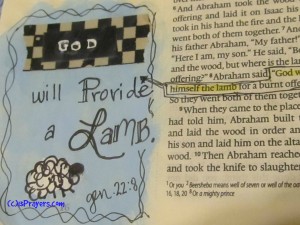Get it right, or don’t do it. Using jargon in your novel.
 I’m a retired educator. So the jargon in the following sentence makes perfect sense to me:
I’m a retired educator. So the jargon in the following sentence makes perfect sense to me:
• Your pod will discuss the IEP after PLC unless you have a 504 scheduled with PT and OT or the LPC, OK?
Please DON’T:
If you have a career OTHER THAN WRITING (because you REALLY ARE a writer), then be careful not to include jargon that other readers aren’t familiar with. (Unless you have a character who likes to show his/her superiority by spouting off confusing things. In that case, go for it.)
Please DO #1:
You know your characters . You know their career choices. Their hobbies. Their experiences. Incorporate some phrases from their life into their conversations. This is a powerful and subtle way of reminding the reader of who they are and what is engrained in them. Real people do this when THEY talk, and your characters ARE real – aren’t they? Here are some examples:
• The cowboy who tells someone to “rein in” his/her attitude.
• Or says, “Whoa” when he wants someone to stop.
• The ball player who tells someone that he has “two strikes” against him.
• The attorney who “appeals” to someone or “objects” when problems arise.
• The stressed-out mom or coach who screams “Time Out!” Each of them carries a different feeling with it.
Please DO #2:
Know the region well-enough to use common lingo. In SW Oklahoma, we invite someone to go for a Coke (even if we plan to drink Dr Pepper or tea)… By the way, sweet tea is a real thing in the South. Just saying. In small town Oklahoma, we would automatically recognize a newbie if they said they were going to “Oklahoma City.” Locals would ALWAYS say “The City” and no one would be confused by that. And please, never…NEVER refer to a Native American in native dress as wearing a “costume.” That is their regalia, and chances are that a beloved elder made it for them.
Please DO #3:
Allow your characters to use jargon associated with their career – if needed – but give them an opportunity to explain – if possible, especially if it isn’t common. If you can’t get the research right on this, don’t do it. Once again, credibility rules. (I lost faith in the author who introduced a horse as a stallion. Later, the rider “saddled HER.” Um, no. Not cool. It wasn’t important to the plot, but it was a detail that stuck out to me.)
Moving forward:
Me? I think I had locals discuss twisters (tornadoes) and rattlers (snakes). I did use military terminology on the back cover: “His [Justice’s] father’s sudden appearance feels more like an IED than an olive branch.” But the term IED has been in the news for several years, so I didn’t feel the need to explain.
You? Get out your dictionary and explore some of the terms and jargon associated with your characters.
I invite you to throw some of your jargon at me in the comment section. Let’s see if I can knock it out of the park. Or pop over to my Facebook page.
The 10 Free Templates list with links is on my Novel Planning Page. You’ll also find information there about the additional template set I have available. Click here for more information. (All templates are available June 14, 2021.)
Abraham had confidence that God would take care of the details that he didn’t understand. That God would provide. And, He always does. I love this story because of the pre-planning required for it to work out. Timing is everything in it. A bush had to grow in just the right place to be large enough to catch the creature that headed up the right path at just the right moment.
Yep. God works behind the scenes to work it out.

